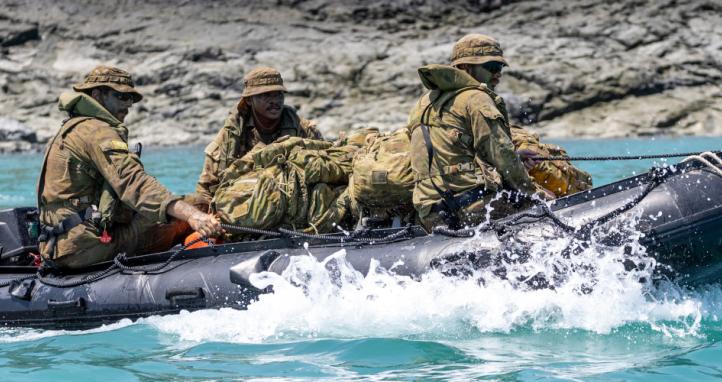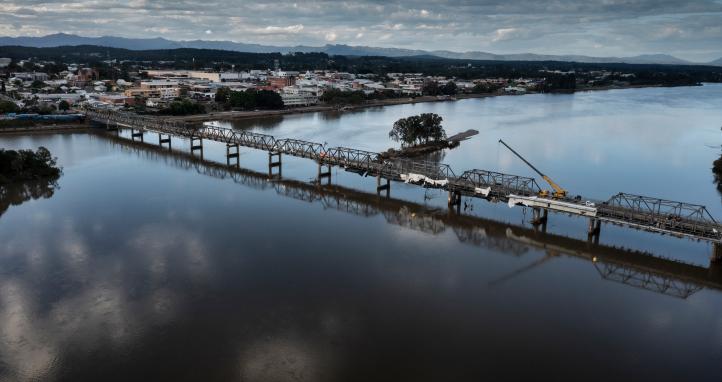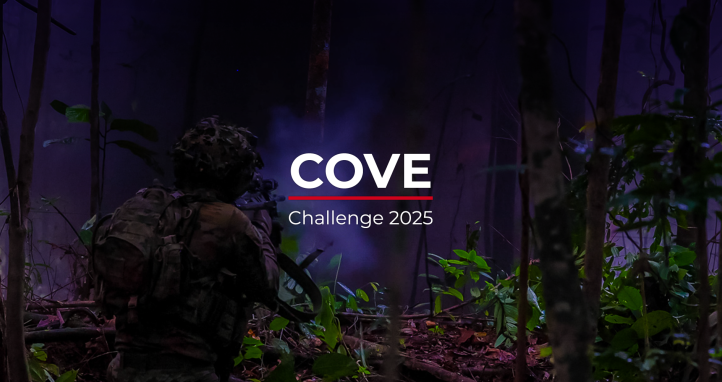Is being resilient as a person important? What are some tangible training opportunities Army could implement to enhance individual and group resilience?
Resilience is achieved through strength of mind. And, if the mind is a muscle and muscles can be strengthened through repeated exercise, could resilience not also be achieved through repeated exposure to hardship?
This understanding of resilience isn’t an idea backed by research. It was not presented by someone with respected qualifications and a deep understanding of the human mind. It was simply how I understood resilience to be for most of my military career.
I thought a stoic mindset was all it took to develop those resilience muscles. That was until this year when my own resilience was put to the test, and I gained a much-changed understanding of mental health and the physical impact of a lack of resilience.
Rewind to 2020. I was awarded the Jonathan Church Good Soldiering Award (JCGSA) for work I undertook at a previous unit in ensuring the names of the fallen were given their rightful place on the unit’s memorial. The award came with a three-week study tour of the Western Front. What an opportunity!
But in March that year the world descended into chaos as the COVID-19 pandemic changed the way we lived. I was informed by Army Headquarters (AHQ) that the trip may happen if international travel re-opened. That was the last correspondence I received about the tour until early 2022. By that stage there were three years’ worth of recipients awaiting their tour and a much larger budget to play with.
At the same time, a small department within AHQ, Unrecovered War Casualties – Army (UWC-A), had also been impacted by the pandemic. UWC-A is responsible for researching, recovering, and identifying recently discovered Australian war casualties and assisting in the research to identify the thousands of unknown Australians lying in military cemeteries around the world.
Due to the restrictions on international travel, UWC-A had a backlog of 17 headstones that needed to be dedicated and one unknown soldier, whose remains had been discovered near Tyne Cot, Belgium, needed to be honourably laid to rest in a Commonwealth War Grave Commission (CWGC). This burial in particular was time sensitive as the five-year limit, set by CWGC, had been reached.
The decision was made for the JCGSA recipients to do something more meaningful than a commercial battlefield tour. Instead, the recipients of 2020-2022 and UWC-A were going to work together to honour our nation’s fallen. The contingent would spend a month in France and Belgium giving identity to 17 Australian soldiers who had been unnamed for over 104 years and giving one more Australian digger the burial he deserved after being killed in the Battle of Menin Road.
Back to my original thought on resilience being developed through exposure and repetition – what an opportunity this would be. In truth, the thought of this experience having a mental impact on me didn’t even register. I was simply excited to spend a month in Europe and honoured to represent my country again on foreign soil. The reality of the emotional impact was soon realised at the first dedication for Private Quinn, a 44-year-old killed in August 1918 and buried at Villers-Bretonneux cemetery.
The location was fitting, as this rural French region is also home to the Australian National Memorial erected to commemorate all Australian soldiers who fought in France and Belgium during the First World War, to honour those who made the ultimate sacrifice and name those whose graves are still not known. Unexpectedly I was struck by Private Quinn’s service – hearing the Last Post played as we awkwardly tried to hold something of a funeral service after only hearing his story moments before.
And seeing Australians, who were on holiday and were only present by chance, sobbing for this man. It was at this point I again thought about resilience and the effect these services could have on the mind.
With each dedication service we conducted the drill movements became sharper, and the prayers and readings were spoken more confidently. But the emotions became heavier. This was not just another headstone. This was another life that was lost. This was another Australian soldier. This was further emotional weight knowing this person’s family had long passed never knowing where their son, their brother, their father, their husband was buried and for over a century no one could place a poppy on their grave and thank them by name for the incredible sacrifice they made.
The first time I realised the effect this trip was having on me was the day after the burial in Belgium. The contingent was conducting a double headstone dedication to two soldiers from the 2nd Battalion who were killed in the same dugout from an artillery shell. My participation in this service was the reading of ‘the Ode’. When I’d previously done this task, I had felt the weight of emotion. However, at this service I had no more emotion to give. I was robotic and felt emotionally numb.
At this point the thought did come, had my theory on resilience been finally achieved? Had I worked the mind enough to have the strength to not be affected by an emotional event? How wrong I was. I had just completed three very heavy days dedicating three headstones and was affected by the stress of ensuring my role in the burial party was completed to the highest standard. Each dedication service from this point forward became even more emotional. The family’s words at the base of headstones became harder to read.
The job was an extreme honour but was becoming more difficult to complete. I was ready to come home to my family but there were still more names to dedicate.
At both the dedication service I was responsible for and the final dedication service we conducted; family members of the soldier attended. Some other services were attended by the individuals that had conducted the years of research to find the soldier’s name. The raw emotion they showed seeing closure seemed to justify the work they put in. However, having family members with a blood connection, this dynamic again increased the emotional load.
This was certainly not the straw that broke the camel’s back, rather this was another heavy emotional weight on already over-burdened soldiers. At the end of a long month doing emotionally exhausting activities, it was this dynamic that made the contingent members really lean in on each other and truly be honest about the effect this trip was having on them. It was at this point I realised repetition and exposure did not create resilience. In fact, it did the opposite. It makes an individual more vulnerable and lessens their ability to take on heavy stress.
How did this all happen then? How were eleven individuals awarded for exemplifying Army’s core values put in a position where they returned to their individual units proud of what they had done, but drained emotionally and expected to step back onto the treadmill and catch up to speed? Could the organisation have better prepared the individuals for the emotional stressors they would potentially experience, or was it not a consideration?
In answering the original question that required this response; is being a resilient person important? Of course it is. Resilience allows individuals to take on the stress the army can put on people. The stress of being woken at 3am, dress in your still saturated uniform and lay down behind a gun on piquet for an hour. The stress of knowing a mate is being loaded onto an aircraft and flown home in a coffin while you’re on an overwatch position still required to do your job. The stress of leaving your partner and children behind to live life without you while you go to another country for months.
This is the importance of resilience. But the army as an organisation must understand it is not something that can be achieved through an annual PowerPoint presentation or an online course. It is something that can be eroded through over-exposure. That resilience is also individual. Perhaps a starting point is the individual speaking up when theirs starts to break.
This is when the army can assist in developing mechanisms or strategies to get their soldier back on track and give appropriate downtime away from stressors to grow and reinforce their resilience. Because resilience is about being able to overcome the unexpected and carry on. Without that ability, soldiers will not be able to carry the burden of service and come out the other side still whole.




